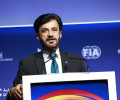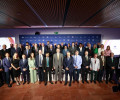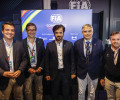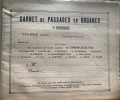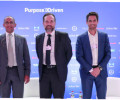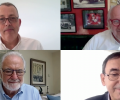RESTORING CONFIDENCE IN TRAVEL
The Mobility session of the 2021 FIA Conference on ‘Removing Barriers to Tourism Development’ focused on two goals – confidence and harmonisation.
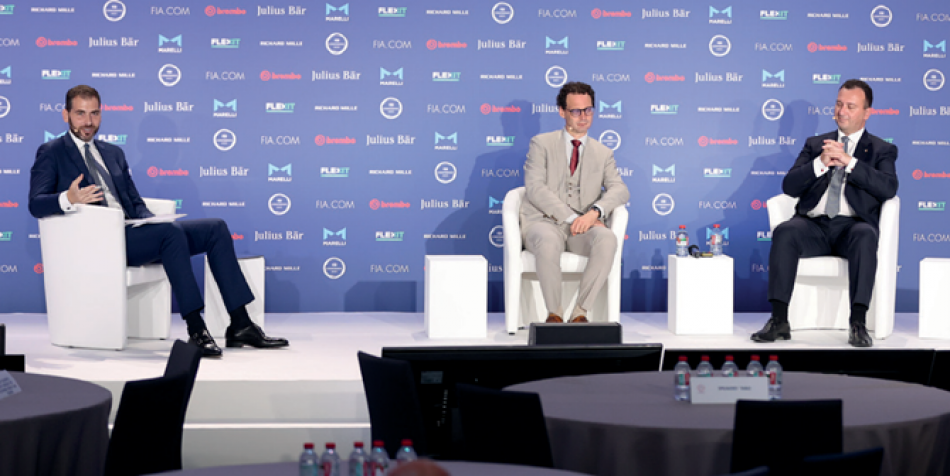
As the world slowly begins to return to normality, travel and tourism are perhaps the industry sectors taking the longest to recover as evolving restrictions continue to stifle freedom of movement and economic hardship narrows opportunity.
Yesterday’s Mobility session sought to address some of the issues facing the industry in a post-COVID-19 world, with session moderator and FIA Director of Tourism Services Habib Turki saying that the “current crisis and its deep social and economic impact shed light on the need for reform – in visa regimes and digitalisation”.
He then turned to the first of the session’s panellists, Vice-President Policy & Research at the World Travel and Tourism Council (WTTC) Tiffany Misrahi, who outlined the scale of the difficulties being faced by the industry.
“The impact of COVID-19 has been wide ranging and multifaceted and, according to our research, in 2019 travel and tourism accounted for 10.4 percent of global GDP. In 2020, that figure was down to just 5.4 percent,” she said. “We saw a loss of
4.5 trillion dollars, a 49.1 percent drop. The impact on people has been heartbreaking. Some 6.1 million people have lost their jobs around the world and there are millions being supported by furlough schemes but those won’t last forever.
“Beyond job losses, people have been impacted on a psychological level. People have lost loved ones, they have lost
jobs, and lost connections with each other. People’s mental health has been put to the test in this period.”
As nations slowly reopen, the question then becomes one of how to revive tourism safely and sustainably.
Maltese Tourism Authority CEO Johann Buttigieg said the island nation has put safety at the top of its agenda as they try to rebuild.
“In Malta, more than 80 percent of people have received a first dose of the vaccine and more than 70 percent a second dose. It is one of the safest countries in the world – in terms of COVID-19 and safe in terms of criminality – and we are incentivising people to come. For conferences, we are providing
€150 for each delegate. There are other incentives for different types of travellers but first and foremost we want to promote safety. We are against putting up barriers.”
He agreed with Tiffany Misrahi that safety is a prerequisite of travel in the current climate and added that Malta is also focusing on personalised travel experiences in order to make travel more attractive.
“Malta is being marketed as a destination of safety but it is also a destination of niche markets, starting from religious tourism, diving, students and others. Then, we are as much as possible trying to create travel with a purpose. We are upgrading infrastructure and, in the event of the recovery of the tourism sector, we will be in a position of not having just quantity but
equality. It’s all about sustainability. We need to follow the advice and turn it to our advantage. We need to focus not on what we can’t do but on what we can do.”
Director of Tourism at the Monaco Government Tourist and Convention Authority Guy Antognelli explained that, for him, “tourism is about connecting people, so we have to make people connect again”.
“What makes me sad is when cruises arrive and they say you will go ashore and meet nobody, that the museum will be cleared just for those passengers. That is not tourism,” he added.
He continued by saying that Monaco was unlike the island of Malta and that it shared a porous border with France and close ties to Italy.
“Every day, we have 50,000 people coming to work inside Monaco. Showing a PCR test every morning is not manageable,” he said. “We have to think about another way. That’s what we want to promote.”
He and Tiffany Misrahi spoke about the WTTC’s SafeTravels Stamp, created for travellers to recognise destinations and businesses around the world that have adopted the SafeTravels health and hygiene global standardised protocols.
“The WTTC label gives confidence to people, clear information,” said Antognelli. “We need science-based information but not in a scientific way.”
He added that Monaco has also launched its own label, Monaco Safe, that certifies that an establishment has complied with all of the essential health and safety criteria laid down by the Monegasque Government to fight the spread of the COVID-19.
Tiffany Misrahi added that the SafeTravels Stamp encompasses 11 protocols and will enable industry stakeholders to remain competitive and sustainable.
“We are reaching 300 destinations around the world with the Stamp,” she said. “In the end, it is not about the Stamp itself, it’s about the protocols behind it, protocols that work and enhance confidence while still making sense in terms of travel.”
UNECE Transportation Facilitation and Economics Section Chief Konstantinos Alexopoulos spoke about how the reaction to the global pandemic had seen international conventions and protocols abandoned and borders closed. “Governments reacted as if it was the 1940s or ’50s, closed their borders and asked people to stay home,” he said.
He added that, as the crisis worsened, the UNECE established an observatory to monitor how travel and border crossing changed. The organisation has now collated data from 176 countries and a study on the effects of the changing policies will soon be published.
He added that the standout realisation coming out of the pandemic is that digitalisation of documentation is crucial.
“The future is digitalisation,” he said. “Then we can speak about green lanes along all the corridors, not just in Europe but from Asia through all of Europe and beyond. This is where we are aiming to go and this is where we are putting all our efforts. Because of COVID-19 governments have finally realised that this needs to be done today not tomorrow.”
Concluding, all the panellists agreed that harmonisation of travel regulations and restrictions is now needed to ensure a gradual return to normal travel.
“We need harmonisation,” said Alexopoulos. “Each and every country having its own rules is destroying tourism. We need to have one set of standards throughout, whether it is PCR testing or vaccination. Tourists must have their minds at rest and they must know exactly what will happen. These are the standard protocols and harmonisations we need to create.”

 Facebook
Facebook Twitter
Twitter